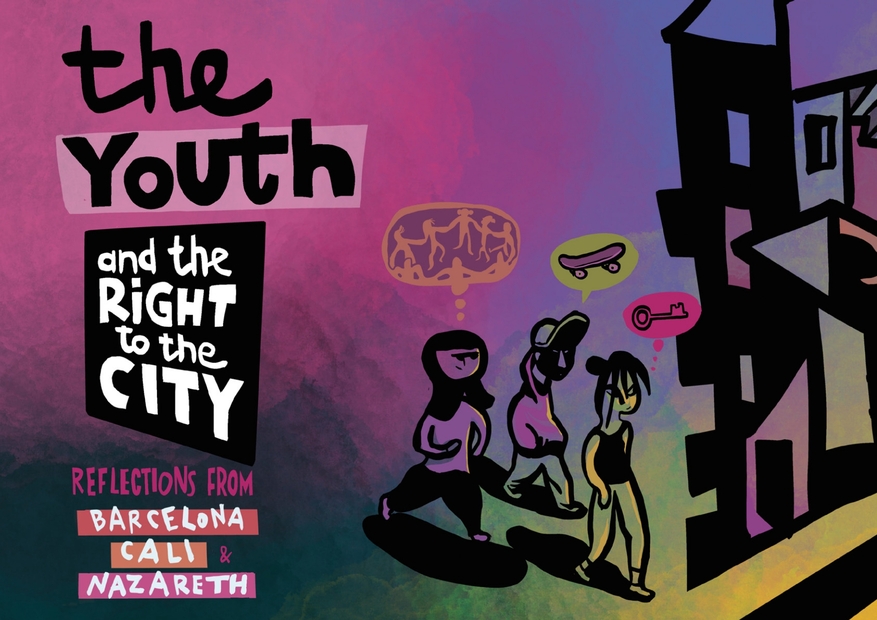
The Youth and the Right to the City. Reflections from Barcelona, Cali, and Nazareth
Created by:
Topics: Education, Intercultural dialogue, and Peace
Year of publication: 2025
Resource type: Booklet
The report “The Youth and the Right to the City. Reflections from Barcelona, Cali, and Nazareth“, prepared by Lorenzo Gabrielli (senior researcher at GRITIM-UPF) and featuring illustrations by Yorgos Konstantinou (Imagistan), is the result of the participatory process and international forum of the project “Catalonia, the Mediterranean, and Abya Yala: articulating transformative youth alliances and strategies” developed by the International Civil Service of Catalonia (SCI-Cat), GRITIM-UPF, and the Youth Council of Barcelona (CJB), with the support of the Catalan Agency for Development Cooperation (ACCD), the City Council of Barcelona, the Provincial Council of Barcelona, and the Catalan Youth Agency of the Government of Catalonia. We present here the results of the qualitative research on youth and the right to the city, which has been developed at different times and spaces. First, a participatory observation of the Youth Act! participatory process was conducted during its 2023-24 edition, which gathered 80 young participants in the 3 cities (30 in Barcelona, 20 in Cali, and 20 in Nazareth). Secondly, an observation of the participants at the III International YouthAct! Forum 2024, held in Barcelona (attended by 39 young people from Catalonia, Colombia, and Palestine), was carried out. In this international meeting, a working session was organized with the participants of the participatory process, in which four themes (mobility, housing, precariousness, insecurity) related to the right to the city were collectively addressed. Through the methodology of sensitive cartography used in this session, part of the visual materials for the research has been extracted. Finally, eight semi-structured in-depth interviews were conducted with young people aged between 22 and 32 who participated in the participatory process in Barcelona to deepen, on an individual level, the understanding of their experiences and subjective perceptions related to the right to the city, as well as their lived experiences on this topic. From the fieldwork, different dimensions emerge that mark the life experience of young people in the city. The elements that have been highlighted transversally as priorities are: housing and urban planning model; precariousness; (in)security; sustainability and the environmental crisis; and mobility. Some fundamental elements of each city are determined by the political, social, and economic context, as well as by the historical trajectory of each context. However, transversal elements emerge across the four themes chosen by the participants from the three cities that are related to the dynamics of global capitalism and that impact the three cities represented in the study, in a more or less different way in each context, but all struggle and resist against the same dynamics of violence that limit their enjoyment of the right to their city.
Find more of our publications

